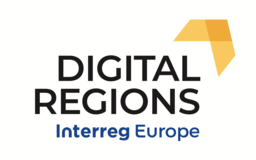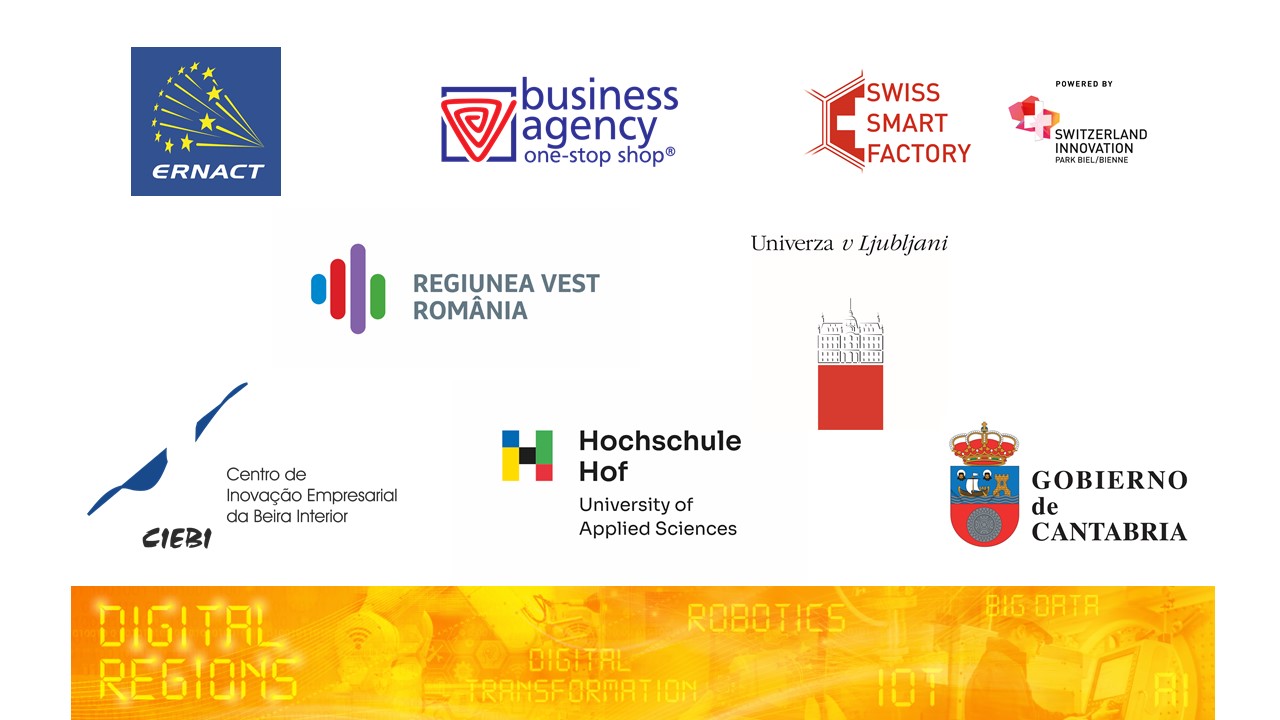DIGITAL REGIONS project partners from West Regional Development Agency in West Romania organised on the 22nd of September an online session for partners and project stakeholders across Europe: 'Skills development in Industry 4.0'.
The virtual session facilitated new networking opportunities among the attendees, who could learn new lessons and some good examples coming from Ireland and Romania. According to the DIGITAL REGIONS partner from West Regional Development Agency, Mr. Cristin Cistelecan, the workshop’s main objective was to provide relevant content for the partner regions for the development of their Regional Action Plans and, to capitalize the findings from the workshop in the Policy White Paper, a document that will be produced by the end of Phase 1 of the DIGITAL REGIONS project.
The first speaker of the session was Mr. Paul Quinn, Industry 4.0 Skillnet Network Manager, who talked about the Skillnet approach to Industry 4.0, how to upskill the Irish workforce. He mentioned the work that is being carried out at IT Sligo and the fundamentals of (IoT) Internet of Things, among others. The Industry 4.0 Skillnet aims to make Industry 4.0 technologies more accessible to Irish businesses through grant funding for workforce development in these technologies. Their focus is on the quarry, construction and manufacturing industries which they believe can profit the most from the implementation of these technologies.
Afterwards, Mr. Cristian Bleotu, General Manager at Effective Flux (one of the largest and experienced Romanian training and consulting provider for process improvement), presented some good practices on technology integration in process improvement. Mr. Bleotu talked about their core services (consulting, training and digitalisation). He explained how they design and deliver customised training with a focus on effectiveness and the digitalization approach, the steps into Industry 4.0 using their solutions.
The second part of the session was led by the DIGITAL REGIONS partner Mr. Cristin Cistelecan, who moderated a workshop with all the attendees to facilitate some exchange of knowledge and experience. Some topics of the ideation were focused on needs and challenges as well as gaps and what can be done to tackle them, regarding Industry 4.0 approach. On the other hand, topics like what analogue hands-on skills (beside the digital ones) are needed, and how digital native workforce can be effectively included in the organization with maximum benefit, were brainstormed.
Then, following the 4 areas of benefit that Industry 4.0 implementation may provide (time, cost, integration and flexibility), skills having the biggest impact were identified.
In that way, the session arrived to its end with the presentation of the general conclusions and some time for questions and answers.












